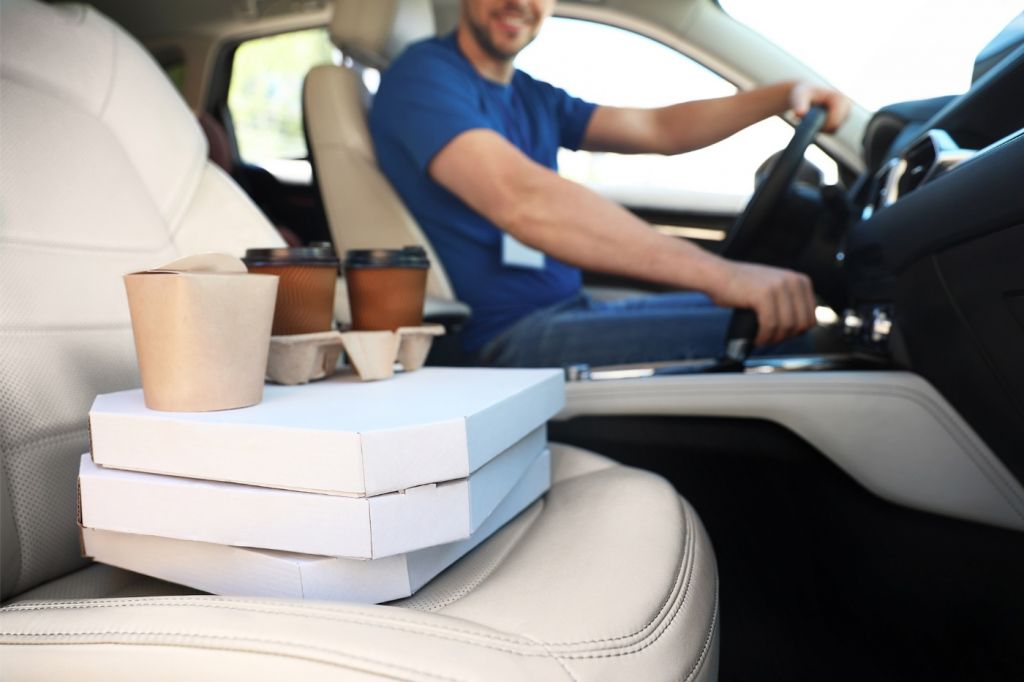Delivery drivers form a key link between you and a world of conveniences, from the quick transport of parcels to the joy of a hot meal. This article will provide a comprehensive tipping guide for all delivery drivers including food, grocery, package, and more.
The standard tip for a delivery driver is typically between $3 and $5 for average-sized orders. For larger orders over $100, a tip of 10% of the total may be appropriate. The tip can vary based on the quality of service and delivery complexity.

Delivery drivers are essential in ensuring that your orders reach you timely and safely. They navigate through traffic, weather, and various logistical challenges to provide this service.
Your delivery driver handles the responsibility of bringing your food or parcels right to your doorstep. The effort put in includes not only driving but also ensuring the correct orders are picked up and delivered without any damage.
Weather conditions and the distance from pickup to drop-off locations significantly affect a driver's day.
The use of personal vehicles and the cost of gas can greatly influence a delivery driver's expenses.
Understanding these facets of a delivery driver's role can inform your decision on how much to tip, recognizing their dedicated service to your convenience.
When you receive a delivery, the tip you give is a token of appreciation for the service provided. You might wonder how much to tip. Here's how you can figure out the tip amount to ensure you're rewarding their hard work appropriately.
The tip amount is typically calculated as a percentage of your total bill. A common practice is to tip around 15-20% of the bill before taxes. For instance, if your bill is $50, a 20% tip would be $10. This percentage can vary based on the quality of service, but it helps you scale your tip to the size of your order.
In some situations, you might consider giving a flat tip amount, like $5, regardless of the bill size. This could be suitable for smaller orders where 20% might not adequately compensate the delivery person for their effort. On the other hand, scaling tips according to the bill amount could be seen as more fair, especially for larger orders. Your tipping approach may depend on the level of convenience the delivery service provides to you, which you can show gratitude for with tipping for delivery.
When deciding how much to tip your delivery person, consider the service type and the effort involved. Let's look at different scenarios to ensure your tip matches the service level you receive.
DoorDash, GrubHub, and Uber Eats:
Instacart and other grocery services:
Deliveries involving stairs or long walk-ups:
Remember, these are guidelines to help you reward the hard work of your delivery drivers.
When you're trying to figure out how much to tip your delivery driver, it's essential to understand the various fees that appear on your bill.
Delivery fees are the charges you pay directly to the company for the convenience of having your order brought to your doorstep. These fees do not go to the driver. As such, they should not decrease the amount you'd tip the driver for their service. For example, you might see a delivery fee of:
Service fees are added by the food service or delivery platform and are meant to cover operational costs like customer support and payment processing. This is known as a service charge, and just like delivery fees, they do not go to the driver. The service fees might be a fixed amount or a percentage of your total, such as:
Remember that these fees contribute to the overall cost of food delivery but are not a substitute for tipping your driver.
In the world of food delivery, you have the option to tip your delivery driver either with cash or via digital methods. Each method has its nuances, and understanding them ensures that your tip effectively shows appreciation for the driver's service.
Cash Tips:
Card Tips:
Tipping through an app is becoming the norm for many delivery services. This method allows you to add a tip directly within the platform used to place your order.
When tipping via an app, remember that your tip is often added to the driver's paycheck, which might delay receipt. It’s important to note the convenience for you, but also the potential delay for the driver.
In the gig economy, tipping holds significant importance for couriers and drivers. Your generosity can directly impact a worker's earnings and livelihood.
Gig workers, specifically those in the delivery sector, often have unpredictable earnings. Unlike traditional jobs that offer a stable minimum wage, your delivery driver's base pay varies widely. Companies may pay a standard fee per delivery, which often does not account for the total effort and expenses incurred by the driver.
For many gig economy workers, tips are not just a bonus but a crucial part of their income. When you tip your driver, you're directly contributing to their ability to earn a reasonable wage.
Remember: As you enjoy the convenience of delivered goods, your tips are integral to supporting the couriers and drivers who make it possible.
When you're tipping delivery drivers, it's important to consider regional customs that can influence the appropriate tip amount.
In the US, tipping practices can vary greatly. While in some areas a modest tip is customary, in larger cities the expectations might be higher. For instance, in more rural areas a tip of 15% is often appreciated, whereas urban centers may expect closer to 20%.
In New York City, especially in Manhattan, tipping is part of the culture. Delivery drivers often rely on tips as a significant part of their income, and here's what you should know:
Remember, when you're in bustling NYC, your tips contribute to the livelihoods of those who are bringing convenience to your doorstep.